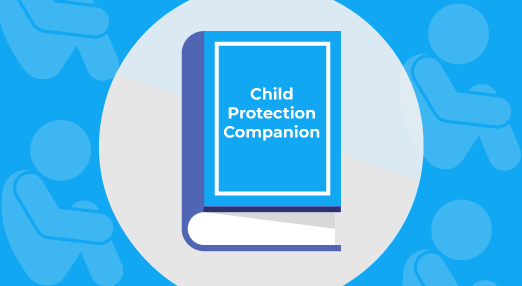Child protection resources
Further to the resources and references throughout the Child Protection Companion, this page includes a list of the RCPCH child protection resources and standards.
-
Child protection and the anaesthetist
This document - published by Royal College of Anaesthetists in partnership with the RCPCH, Association of Anaesthetists of Great Britain and Ireland, and Association of Paediatric Anaesthetists of Great Britain - aims to assist anaesthetists and theatre personnel where safeguarding concerns are raised during the course of a routine anaesthetic or perioperative care.
Read more
-
Child protection service delivery standards
Published in 2020, these are good practice service delivery standards for the management of children referred for child protection medical assessments.
Read more
-
Expert witness guidance
The following guidance is to support our members who provide an expert opinion or act as professional or expert witnesses in courts or tribunals.
Read more
-
Medical photography of possible physical abuse in children
This guidance, refreshed in June 2019, outlines best practice management of requests from statutory agencies (police / social services) for medical opinion on photographic images of possible physical abuse in children. The guidance is intended to create an agreed practice framework to manage requests.
Read more
-
If you have a concern about a child’s safety or welfare
If you have a concern about a child’s safety or welfare contact the NSPCC Helpline on 0808 800 5000. You can call Monday-Friday between 8am-10pm or weekends between 9am-6pm. Or you can email them at help@nspcc.org.uk.
Read more
-
Key principles for intimate clinical assessments undertaken remotely
The COVID-19 pandemic has accelerated the adoption and utilisation of online and video consultations as part of core clinical practice. This guidance focuses on how to safely manage the receipt, storage and use of intimate images taken by patients for clinical purposes.
Read more
-
Looked After Children (LAC) – resources and guidance
This term typically denotes children cared for by Government, though exact definitions vary between the four nations. More than 93,000 children in the UK are in care, 70,000 in England. Most are taken into care over fears of abuse or neglect. They are vulnerable to health inequalities, and exhibit significantly higher rates of mental health issues, emotional disorders (anxiety and depression), hyperactivity and autistic spectrum disorder conditions.
Read more
-
Medical experts in the family courts
Published in October 2020, this is the final report from the President of the Family Division Working Group on Medical Experts in the Family Courts. It makes 22 recommendations aimed at reducing expert shortages.
Read more
-
Peer Review in child protection
This guidance aims to update the previous RCPCH Peer Review guidance, and address disclosure of unused material and the use of video conferencing.
Read more
-
Perplexing Presentations (PP)/Fabricated or Induced Illness (FII) in children – guidance
This guidance, published in March 2021, provides best practice advice for paediatricians in the medical management of PP and FII cases to obtain better outcomes for children.
Read more
-
Physical signs of child sexual abuse 2015 (Purple Book) – about
This guidance includes good practice in relation to the paediatric forensic examination where there are concerns about child sexual abuse. It also provides an evidenced-based review of the interpretation of physical signs.
Read more
-
RCPCH Progress curriculum – resources on the safeguarding domain
The RCPCH curriculum ensures that doctors in postgraduate paediatric training in the UK develop their knowledge and skills across key practice areas, and includes a domain especially on safeguarding. These resources were developed by and with trainees.
Read more
-
Roles and competencies – for paediatricians, named and designated doctors, and all healthcare staff
To protect children and young people from harm, and help improve their wellbeing, all healthcare staff must have the competencies to recognise child maltreatment, opportunities to improve childhood wellbeing and to take effective action as appropriate to their role.
Read more
-
Safeguarding children – guidelines for occupational health professionals
This document published by the Faculty of Occupational Medicine in partnership with the RCPCH sets out guidance for safeguarding children within the occupational health setting.
Read more
-
Safeguarding guidance for children and young people under 18 accessing early medical abortion services
This guidance is for health organisations providing early medical abortions to children and young people under 18 years old across the UK
Read more
-
Serious Case Reviews (SCRs) in child protection briefings
Serious Case Reviews (SCR) in child protection have been identified and compiled by NSPCC and Knowledge and Information for the RCPCH. They are relevant to all paediatricians and key points have been outlined in bold.
Read more
-
Service specification for the clinical evaluation of children and young people who may have been sexually abused
This outlines the standards for the provision of a paediatric forensic medical service for children and young people who may have been sexually abused. These standards were produced by a working group of the RCPCH Child Protection Standing Committee in partnership with the Faculty of Forensic and Legal Medicine to inform the establishment of these services in the UK.
Read more
-
Sudden unexpected death in infancy and childhood – multi-agency guidelines for care and investigation
When a child dies, families desperately need to know what happened. To understand why an infant died, it is vital agencies work together, share information and keep families included at every stage. These guidelines were published in November 2016 by a multi-agency working group convened by the Royal College of Pathologists (RCPath) and RCPCH.
Read more
-
Further child protection resources – links
References to sources and additional information on the topic of child protection.
Read more
Key resources
-

Child Protection Companion (CPC)
The CPC handbook describes the essential context and the pathway of child protection cases, beginning with the medical assessment, with a discrete chapter on each form of maltreatment, and continuing through to court and training. It is available to RCPCH members (most membership types) and subscribers.
Read more
-

Child Protection Evidence
Child Protection Evidence is our evidence-based resource for clinicians in the UK and internationally helps inform clinical practice, child protection procedures and professional and expert opinion in the legal system.
Read more
-

Educational opportunities in safeguarding
We work to protect children from harm by providing paediatricians and other child health professionals with essential competencies in their child protection practice. This page introduces learning opportunities and guidance.
Read more
